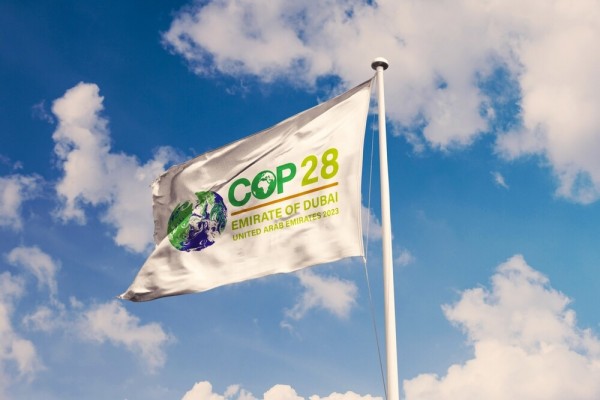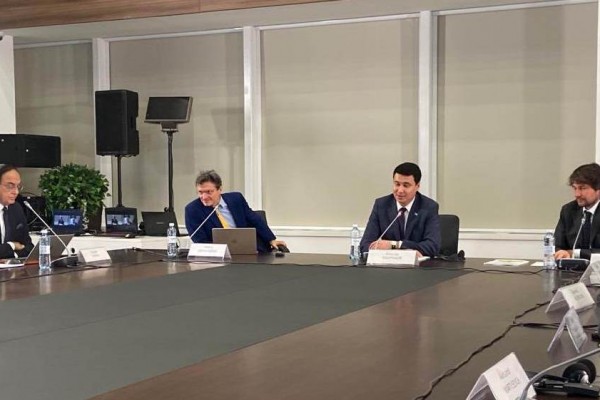On October 6-7, The Eurasian Antitrust Forum 2022, co-organized by the BRICS Competition Law and Policy Centre, took place in Almaty, Kazakhstan. Director of the Centre Alexey Ivanov moderated the session “Protecting and Supporting Competition in a Changing Reality”.
In recent years, protection and support for competition has become one of the main areas of economic policy for various reasons. New mechanisms for fostering competition on markets where, traditionally, the condition of competitiveness had not been decisive, are being developed. The experts discussed how the macroeconomic situation is changing and how the regulatory landscape is transforming.
In the pandemic, new challenges and conditions for economic activity have emerged, which required the rethinking of the role of competition, said Andrey Tsyganov, Deputy Head of FAS Russia. In this sense, Russia and Kazakhstan are facing similar tasks, which are set forth in detail in The Decree on the main directions of development of competition in the Russian Federation and The Decree on approval of the Concept of protection and development of competition in the Republic of Kazakhstan for 2022-2026.
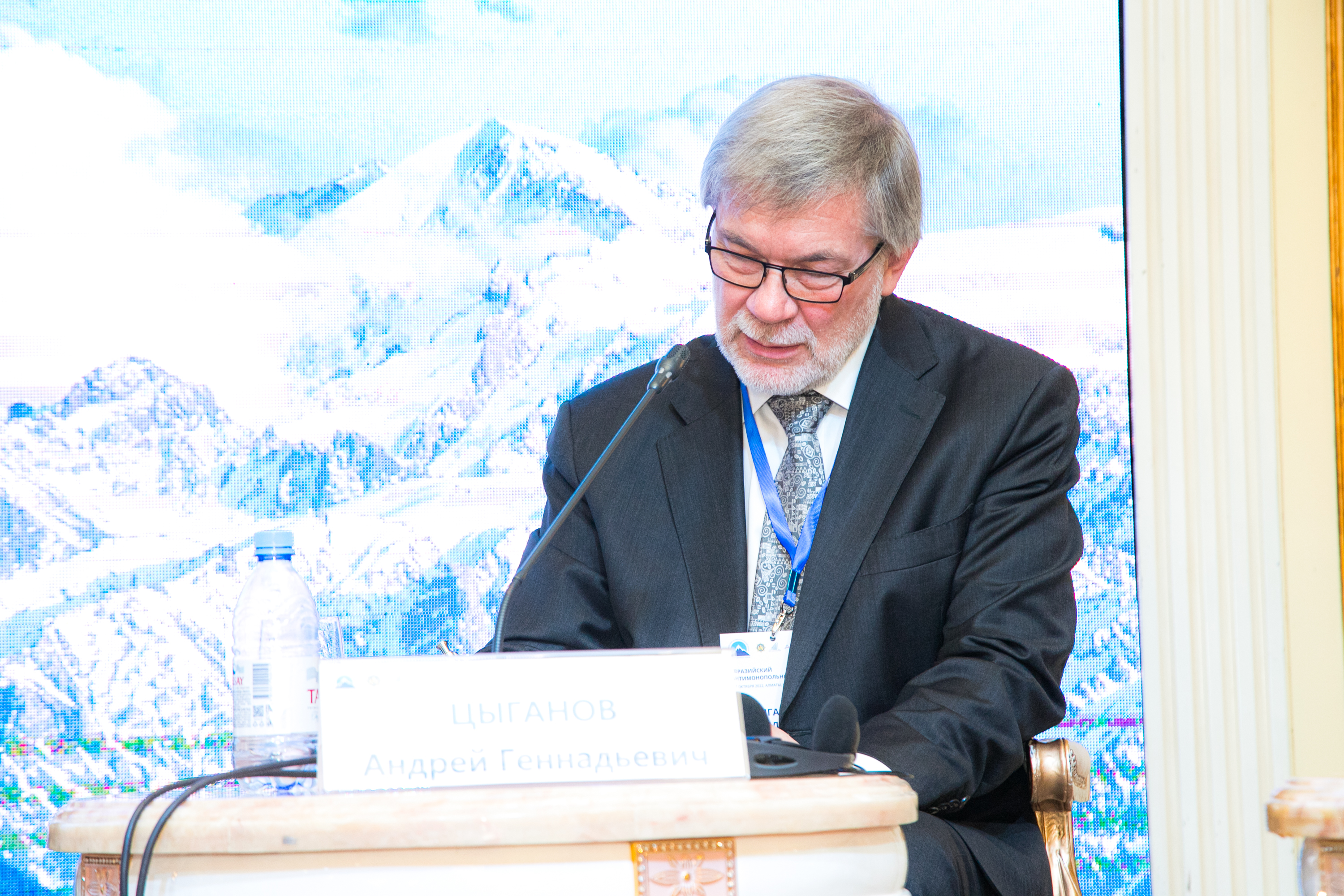
Asadulla Kayumov, First Deputy Chairman of the Antimonopoly Committee of the Republic of Uzbekistan, spoke about the history of the agency's creation. In 2019, the Committee was separated from the Committee on Privatization, and in 2020 adopted the Strategy for Development and Protection of Competition in the Republic of Uzbekistan. Now the antimonopoly authority is working on the introduction of new terms in the regulation of digital markets — they are prescribed in the draft law, which is already at the stage of consideration in Parliament.

The issue of discrepancy of antimonopoly legislation of early 90s with today's realities was raised by Jafar Babayev, Main adviser head of the state service for Antimonopoly and Consumer Market Control under the Ministry of Economy of the Republic of Azerbaijan. It is also necessary to optimize the management structure and fully digitize the activity, the official believes. Speaking about the main directions of his department's work, such as protection of competition and consumer rights, control over quality of infrastructure and state procurements, Jafar Babayev said:
"The consumer is in the center of everything, in all these areas he is the main subject."
Ujjwal Kumar, Associate Director, CUTS International (India), stressed that during crisis regulatory bodies must be flexible and timely respond to new challenges.
"Climate change, geopolitics, and the COVID-19 pandemic have affected the resilience of supply chains, and competition law must adapt to the circumstances,"
he said.
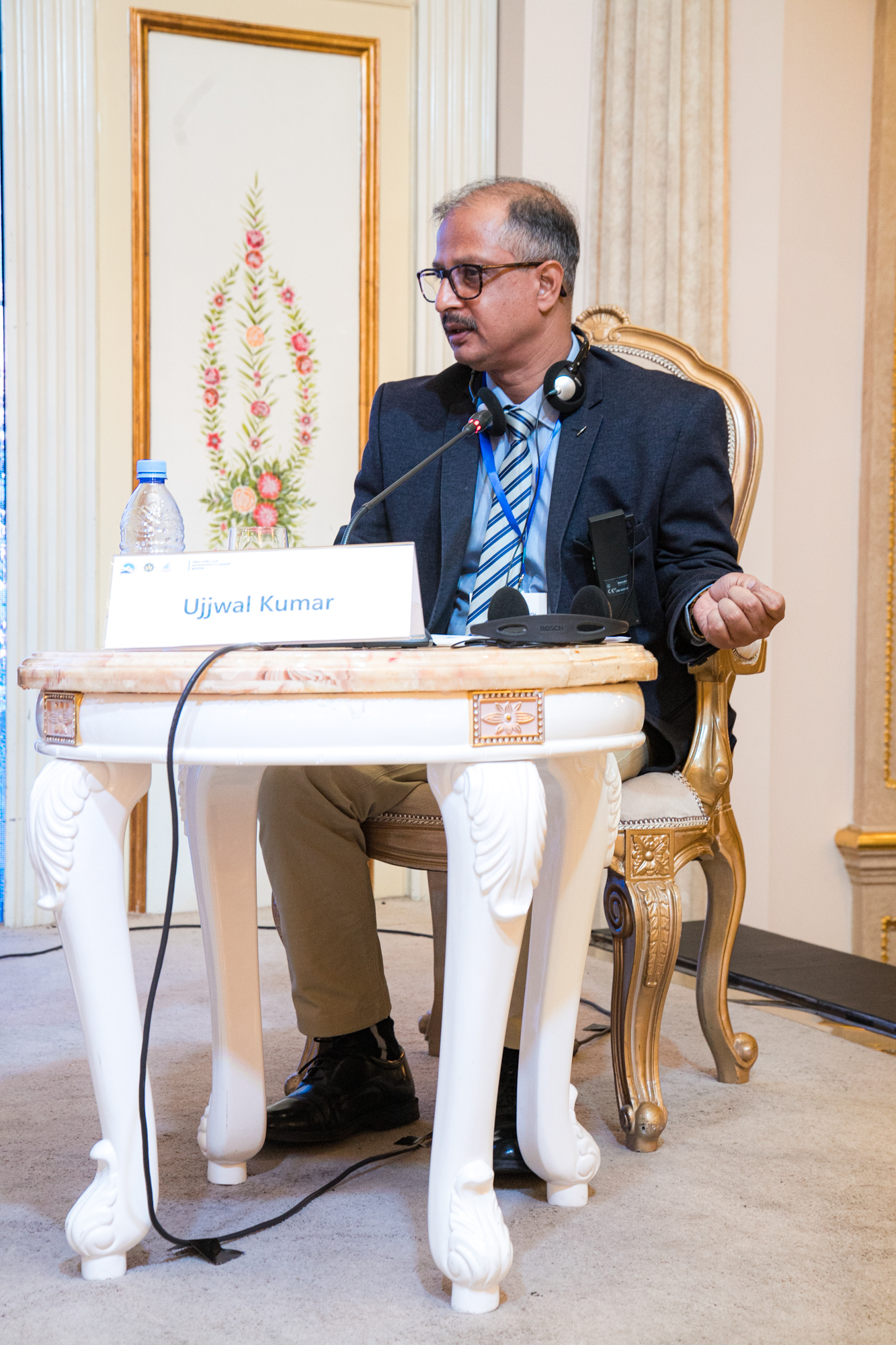
Marat Omarov, Chairman of the Agency for Protection and Development of Competition of the Republic of Kazakhstan, spoke about current trends in antitrust, in particular about the "Neo-Brandeis" movement in the U.S. and the active fight against digital monopolies. In his opinion, "there is a demand for monopoly regulation in the society." However, it is important to develop the bottom-up approach — that is, the practice of private lawsuits and active courts.
Marat Omarov is convinced that a network for exchange of information and experience, following the example of European Competition Network, is also necessary for a successful fight against regional monopolies. The Agency is open to cooperation with public experts, development institutes and consulting agencies.
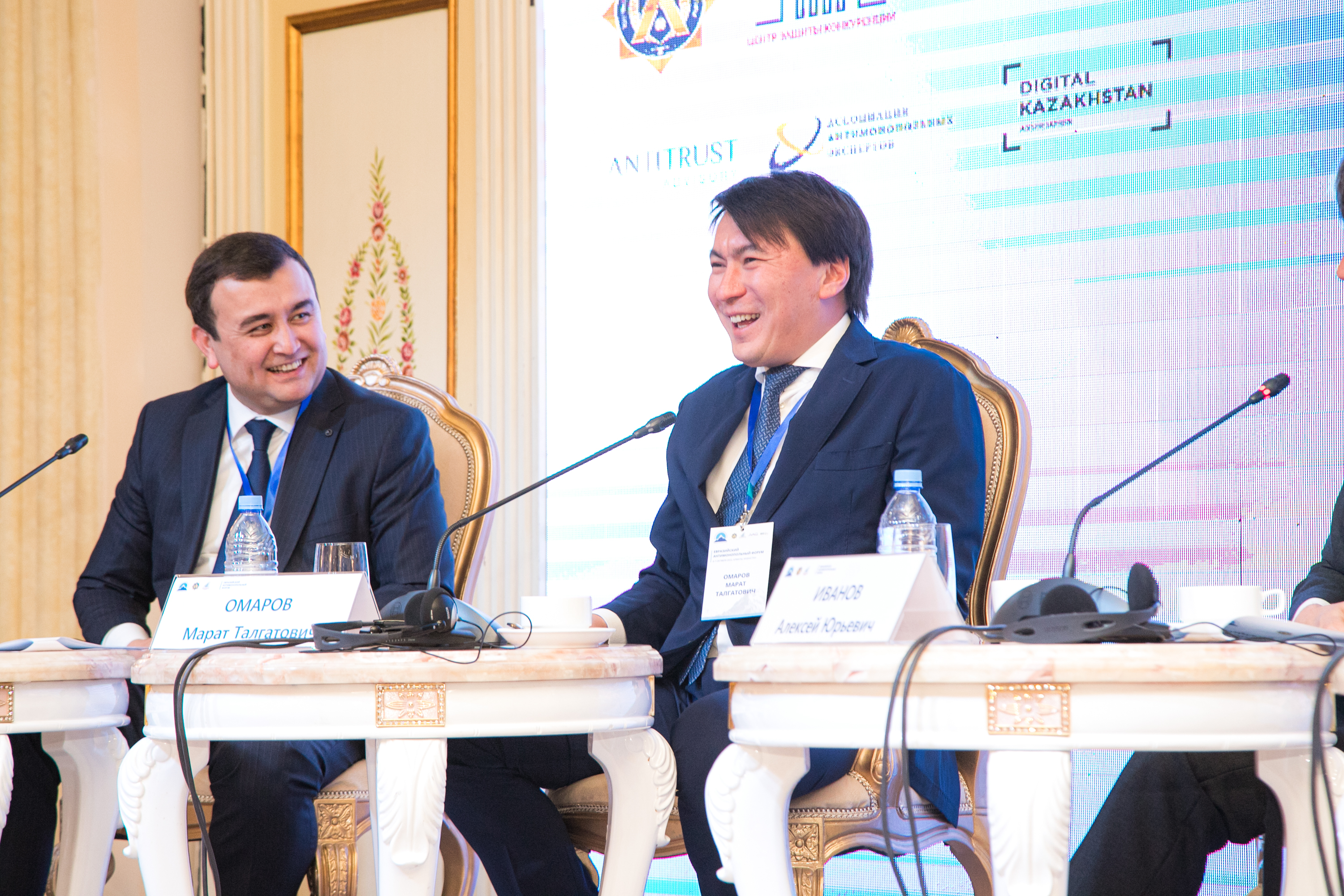
Concluding the first panel session, Director of the BRICS Competition Law and Policy Centre Alexey Ivanov reminded that antitrust was initially born during the crisis as a response to an emergency situation:
"We are used to seeing antitrust as a soft measure applied in normal circumstances, but 'emergency' antitrust is also applicable for crisis recovery."
The second part of the meeting began with a conversation about the importance of adhering to the rule of law. Claudio Lombardi, Associate Professor in Law, School of Law, University of Aberdeen, director of the Eurasian Center for Law, Innovation, and Development (ECLID) at KIMEP University (Kazakhstan), noted that adherence to this principle increases trust and justice in society, promotes foreign direct investment and effective law enforcement.
"We should never forget about the consistent and coherent interpretation of laws to ensure the rule of law,"
the expert stressed.
In addition to providing legal guarantees, it is necessary to work to stabilize the market and achieve a balance of interests between partners and governments, said Nikolay Radostovets, Executive Director of the Republican Association of Mining and Metallurgical Enterprises President of the Republican Association of Legal Entities (ALE) Union of Commodity Producers and Exporters of Kazakhstan. We need to understand where the barriers to common markets are, as the states within the EAEU are beginning to fence off their markets from the common economic space, he said.
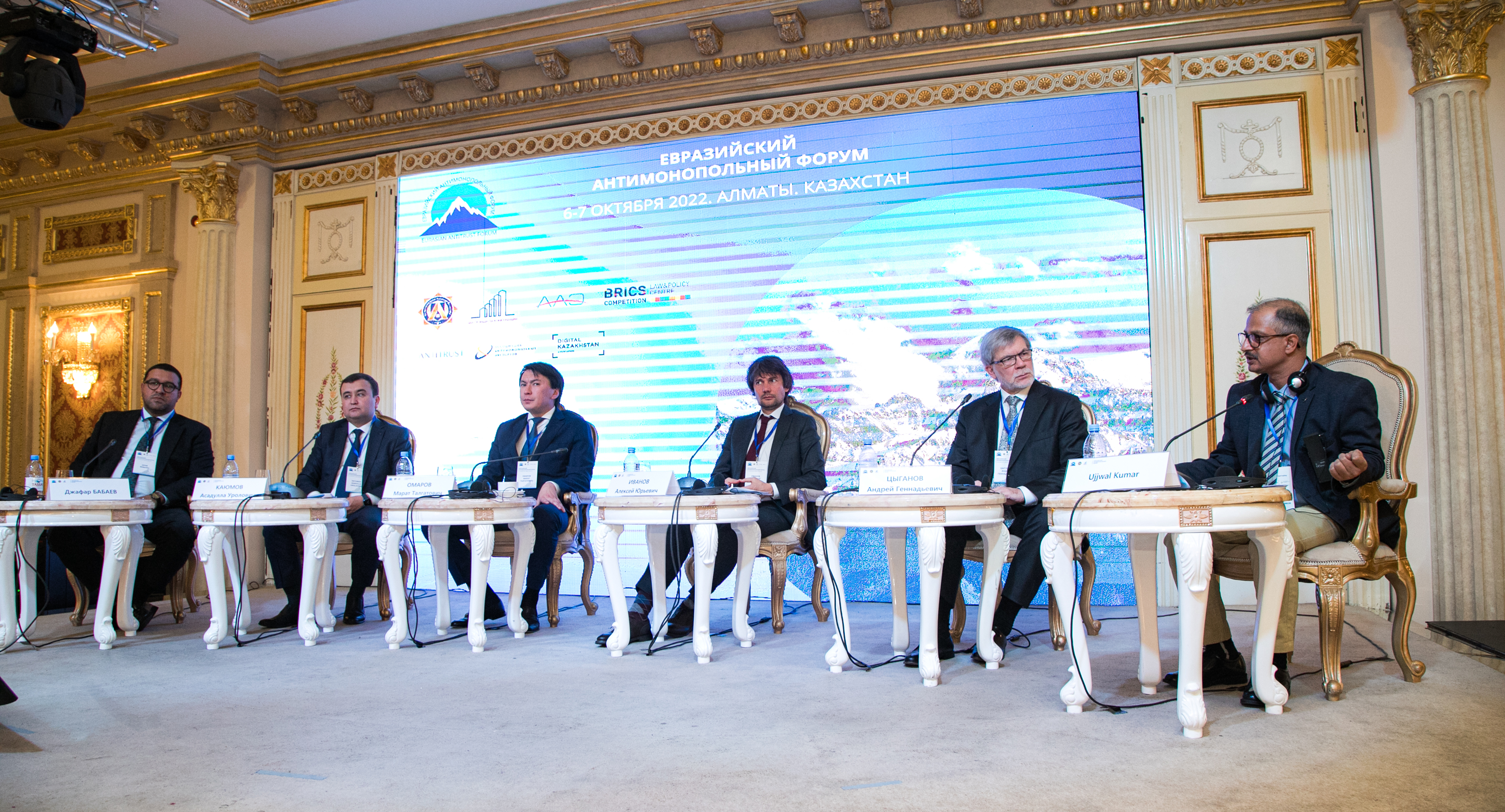
Dr. Marek Martyniszyn, Professor in Law at Queen's University Belfast, urged to think how each country could reflect its socio-economic realities in the anti-monopoly legislation. Even with the turbulence, there will be both challenges and opportunities for the Eurasian region, he believes.
"The question is how to make the local economies more resilient and more predictable, and there is a need for a political will for cooperation,"
summarized the expert.
At the end of the event, Arsen Iskakov, Director of the Competition Strategic Development of Agency for the Protection and Development of Competition of the Republic of Kazakhstan, once again stressed the importance of cooperation between antimonopoly authorities of different countries and their willingness to engage in dialogue.

